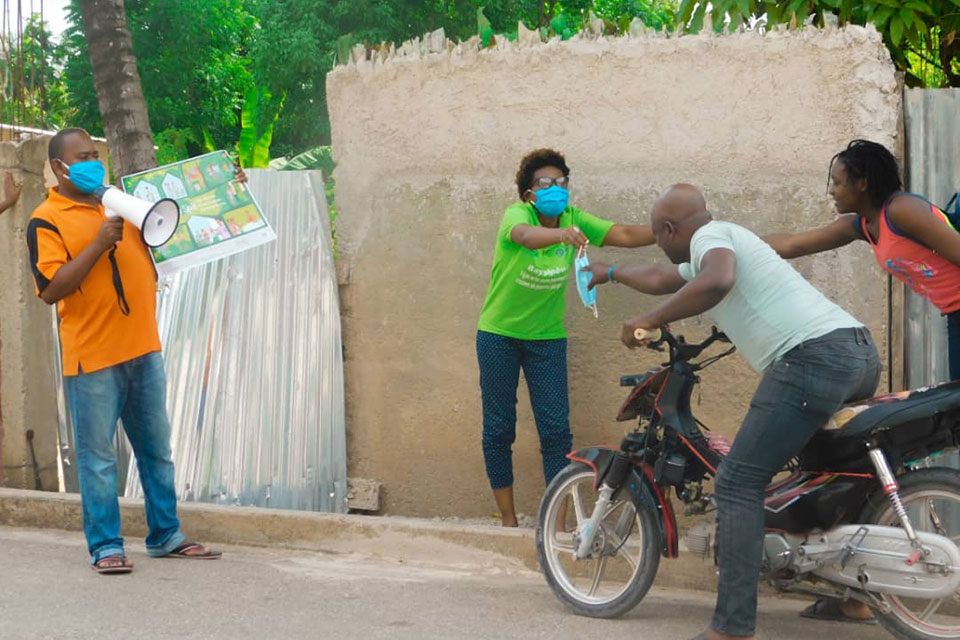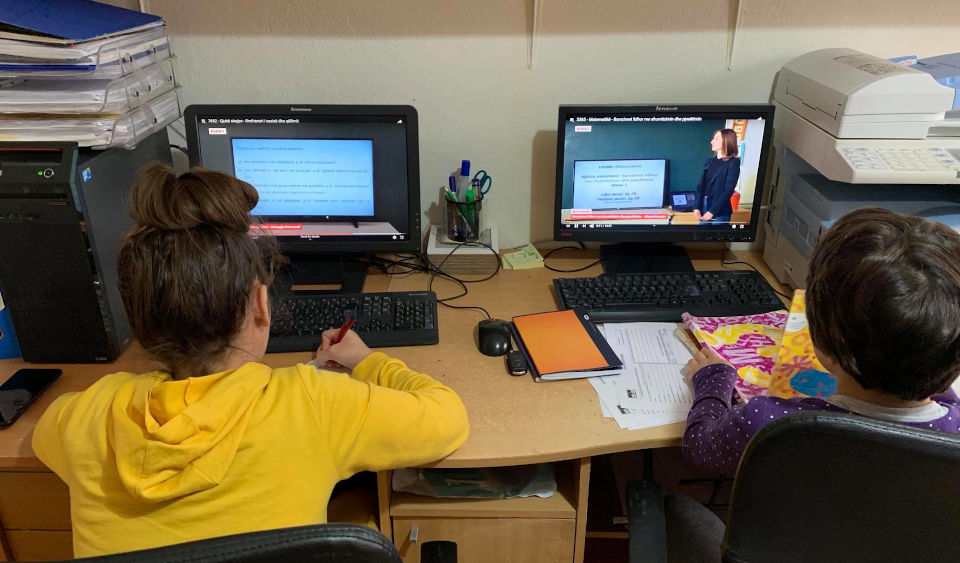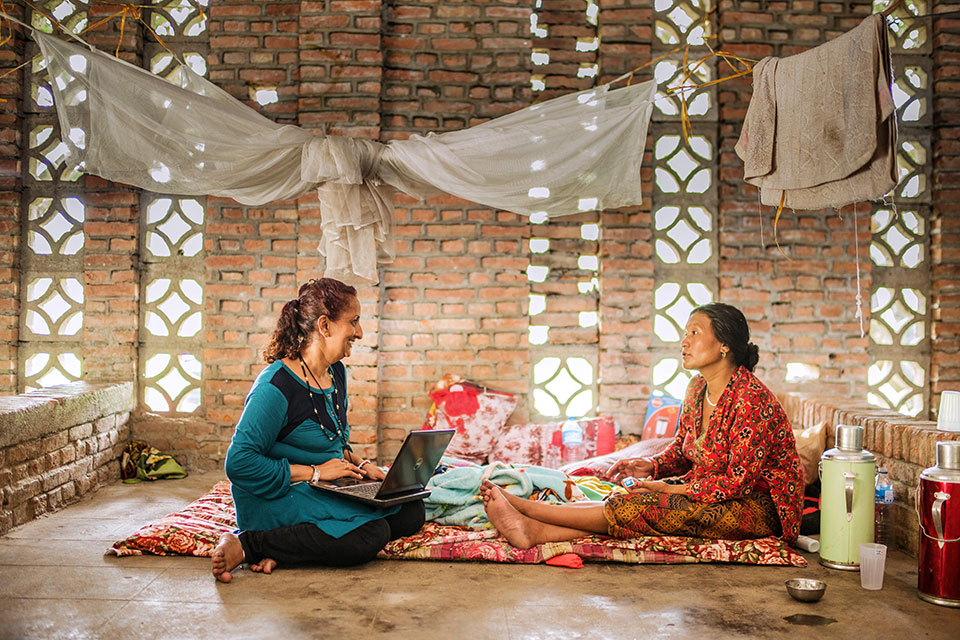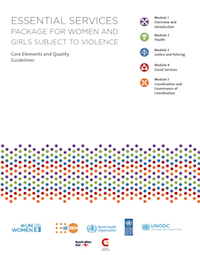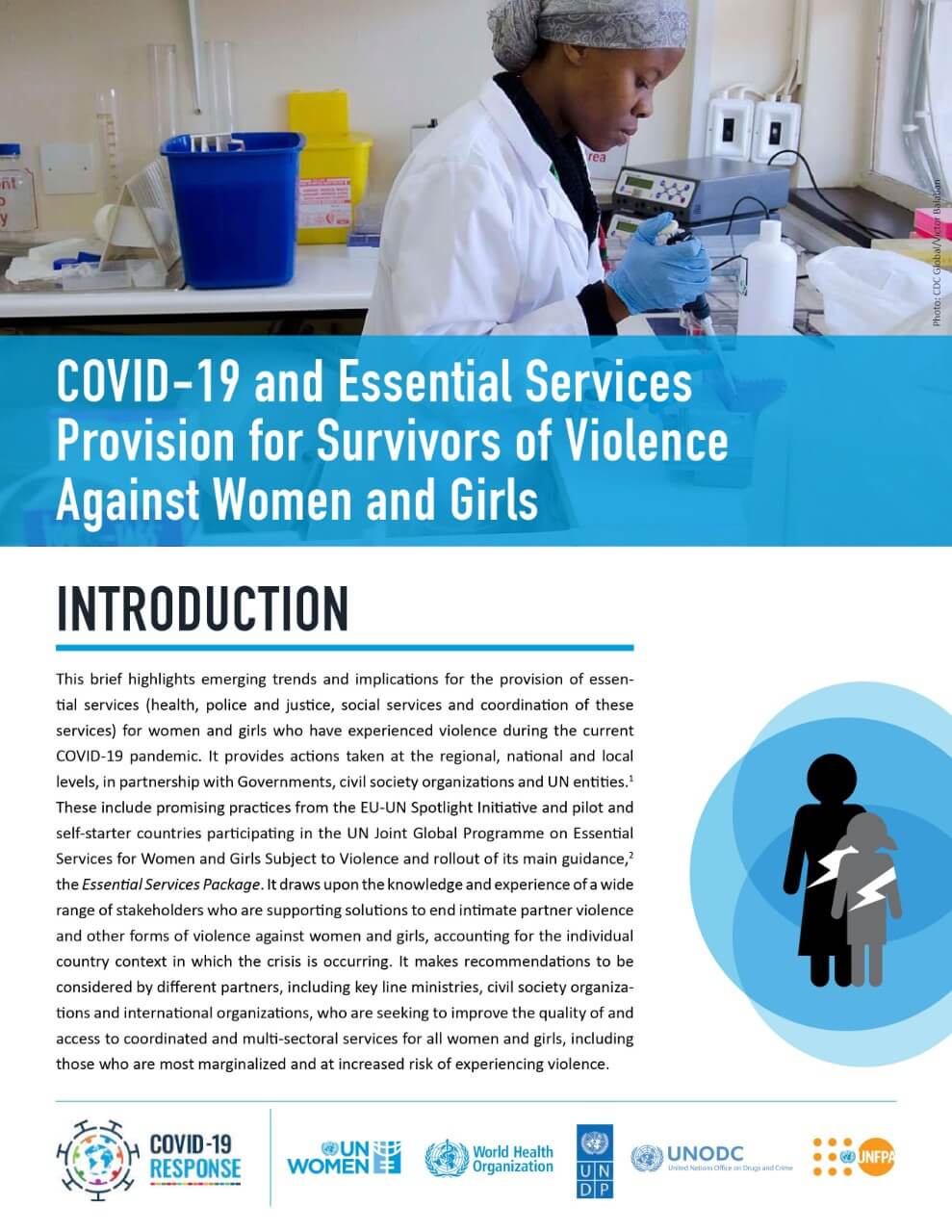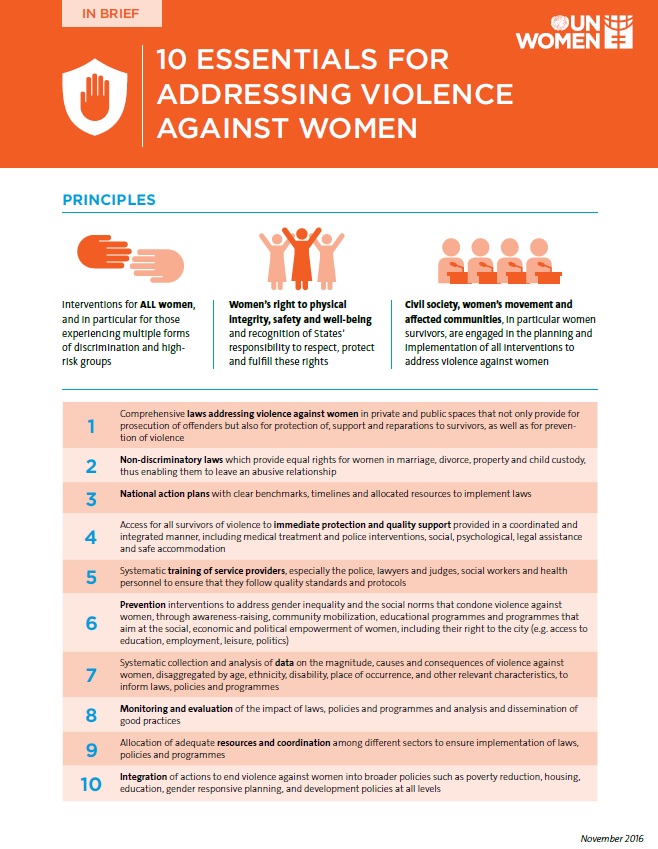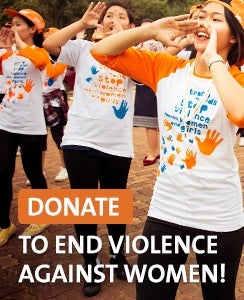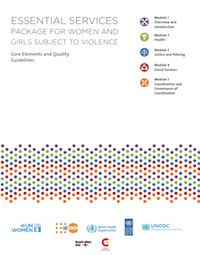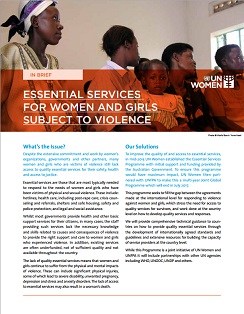Essential services: Ending violence against women
The term “essential services” refers to a set of core services that respond to the immediate and long-term needs, and well-being, of women and girls who have experienced violence. Such services include health, police and justice, and social services. With a minimum and coordinated response among them, essential services can respond to some of the most common forms of violence against women, such as sexual violence and intimate partner violence, in diverse contexts and circumstances.
Despite commitments by various governments, many women and girls around the world still lack access to quality, multi-sectoral services essential for their safety, protection, and recovery, especially those who already suffer multiple forms of discrimination. Even when basic services exist, they are typically underfunded, understaffed, or not of high quality.
Only 40 per cent of women seek help of any sort after experiencing violence, and only 10 per cent go to the police (United Nations, 2015), due to a number of factors, including the shame related with the violence, fear of payback, the high costs of accessing services, or a lack of knowledge of how, and where, to access services.
This can lead to “revictimization”. Providing access to survivor-centred services, such as immediate and long-term health care, counselling, timely police response, access to justice, as well as safe accommodation and shelter, can help women and girls break recurring cycles of violence and begin to recover.
Our solutions
Through the UN Joint Global Programme on Essential Services, UN Women is working to improve the quality of, and access to, comprehensive essential services for survivors of violence. With support from various government partners, we are providing technical guidance on how to develop and implement global norms on quality multi-sectoral services and responses.
In Viet Nam, for example, with support from the UN Joint Programme, a Domestic Violence Rapid Response Team is being piloted in Ben Tre province. This team consists of local women’s organizations and local authorities who respond to high-risk domestic violence incidents in a coordinated manner.
In addition, UN Women is advocating that shelters and crisis centres remain open and deemed essential during the COVID-19 pandemic, and that scaled-back or remote services are offered, while adhering to necessary safety precautions.
In the Pacific region, for example, UN Women has worked with national governments and civil society organizations to develop a suite of online training packages and resource kits that support remote service delivery during the COVID-19 crisis.
Video
Stories
Publications and resources
At a glance
-
Essential services package for women and girls subject to violence
The UN Joint Global Programme on Essential Services for Women and Girls Subject to Violence, a partnership by UN Women, UNFPA, WHO, UNDP and UNODC, aims to provide greater access to a coordinated set of essential and quality multi-sectoral services for women and girls survivors of gender-based violence. This publication includes five modules with service delivery guidelines. More
